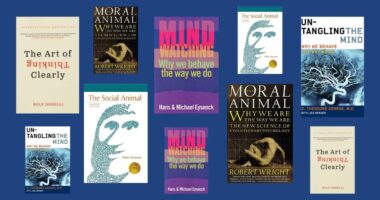Things to Remember While Writing Short Stories: People often disregard short stories as being the lightest form of writing, but nothing could be farther from the truth. Some of the most acclaimed writers, such as Jhumpa Lahiri, Guy de Maupassant, O’ Henry and more are primarily short story writers. Writing short stories requires a different type of craft altogether. If you’re planning on taking to the craft of short stories, here is a list of tips to help you.
9 Things to Remember While Writing Short Stories
Don’t try to do what the novel does
The first step to writing a great short story is knowing that the form itself is different from the novel. The novel allows elaboration and meandering and lends itself to subplots but the short story doesn’t. That is the beauty of the novel. But the beauty of a short story lies elsewhere – in the streamlined structure and intense action within a short span. It’s best to avoid trying to do what the novel does. That is not ambitious but disrespectful to the form.

Understand the beauty of the brevity
This follows from the previous step. The beauty of the short story lies in its brevity. It does not set out to chart entire lives or magnanimous events. It is short, straightforward and packs a punch within a short space. Thus it is necessary to trim from the short story everything that is superfluous or unnecessary. This not only makes the short story more impactful because of its intensity but also more appealing and accomplished.
Keep the plot well-paced
When you strip everything superfluous from the story, it immediately gains pace. This is because a lot seems to be happening in a very short space. There are several kinds of short Stories. Some, like O. Henry’s or Kate Chopin’s, are full of action which ends on a high note. Others, such as Virginia Woolf’s or James Joyce’s are more reflective and dormant, based on the stream of consciousness. Decide your vibe and structure the plot accordingly.
Make sure your ending is impactful
A lot of the short story depends on how it ends. The end determines what aftertaste the story leaves. And because the short story has very little space to demonstrate your writer’s genius, the writer’s genius has an opportunity to concentrate on the ending. The ending could have a twist in the tale as in Jeffrey Archer’s short story collection of the same name. Or the end could even be really dramatic, unexpected or even anticlimactic.

The backstory should be alluded to
Most people think that a drawback of the short story is that it doesn’t give writers enough space to fledge out their characters. With novels, one can write elaborate backstories with anecdotes, flashbacks or even episodic scenes. However, that is the power of the short story. Backstories within short stories are allusive and suggestive. This not only adds to the curiosity due to Mystery but also lends itself to interpretation.
Have a strong perspective
A short story may not be very plot dense or have a lot of very meaty characters, but it can and should have a strong perspective. The authorial voice that comes across in the story can steal the show if done right. The authorial voice, which expresses the writer’s creative tendency and artistic sensibility, as well as the message and tone of the story, is the limelight. If the authorial voice is effective, the short story excels.
Make your protagonist layered
Many great writers have a piece of common advice – the number of characters in a short story should be minimal in quantity but maximal in quality. Thus, the best way to use the form effectively would be to have only a couple of characters, at most three or four. But all of these characters should be complex and layered in their own right. This invests readers in the story while also keeping confusion at bay. Too many ordinary characters is a bad idea.

Don’t have too many scenes
Again, being too ambitious with scenes, just as with characters, will make a short story fall flat. Too many scenes can make the plot of a short story dense ad fast but it will also not root the reader. The reader might feel like he or she is flying through the story, which means that they will read a lot in a short span. Thus retention might be low, especially because the story will get over very soon. This will also leave readers with dissatisfaction.
Keep everything streamlined
Most of these tips lean towards one central tip – have a taut, terse structure, for it makes the reader also feel the same way. Brevity accomplishes more by virtue of its being devoid of nonsense. This is an opportunity to make the short story full of intensity and action, without any of the roundabout turns and wiles of the novel. This requires you to keep your imagination in check because as a writer, it tends to flow unchecked.
Also Read: 9 Road Trip Books to Binge in This Holiday Season



